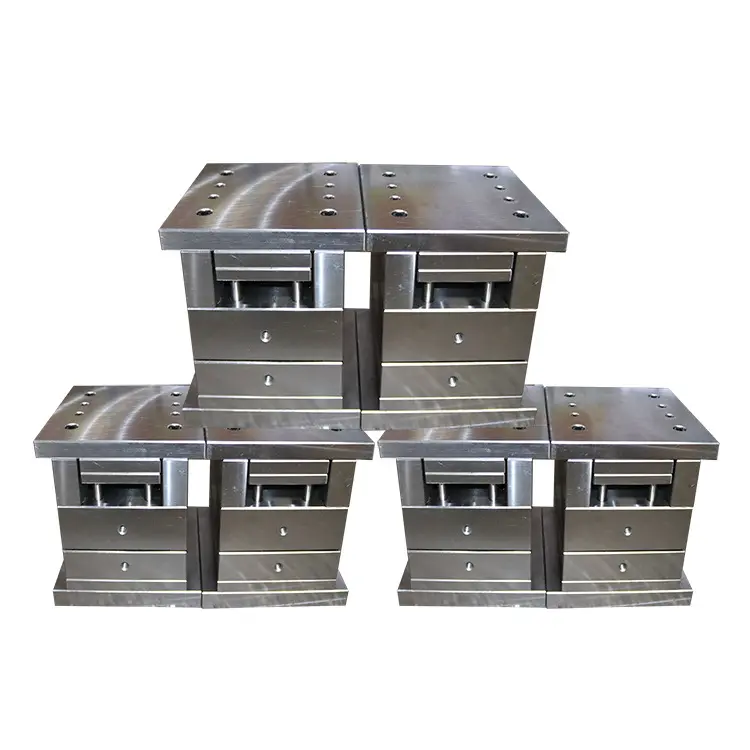As the manufacturing industry in Saudi Arabia continues to expand, companies are increasingly looking for **high-quality mold steel solutions** that can meet their specific needs. The use of the right materials not only enhances production efficiency but also significantly impacts the longevity and quality of the finished products. This article will explore the different types of mold steel available, their applications in manufacturing, and the benefits of investing in superior mold steel solutions.
Understanding Mold Steel
Mold steel is a category of tool steel that is specifically engineered for making molds designed to shape materials into required forms. It is vital in various manufacturing processes, including injection molding, blow molding, and compression molding. What sets mold steel apart is its **high hardness**, **durability**, and resistance to wear and deformation under stress. These properties are crucial for maintaining precision and efficiency in production.
Types of Mold Steel
1. **P20 Steel**: Widely used for injection molding, P20 steel offers excellent machinability and is routinely utilized for making plastic molds. It has a good balance of hardness and toughness, making it ideal for medium-sized molds.
2. **H13 Steel**: Known for its excellent thermal conductivity and resistance to heat, H13 steel is commonly used in hot work applications. Its ability to withstand extreme temperatures without deforming makes it an exceptional material for molds.
3. **S7 Steel**: This type of mold steel is primarily used for making tools that require significant toughness. S7 steel is ideal for applications that demand high impact resistance.
4. **D2 Steel**: D2 is a high-carbon, high-chromium steel known for its excellent wear resistance. This steel is typically used in applications where longevity is critical, such as in a highly abrasive environment.
Importance of Quality Mold Steel in Manufacturing
Investing in **quality mold steel** provides numerous benefits. Firstly, it **reduces production costs** through increased durability and fewer replacements required over time. High-quality mold steels are designed to last, meaning fewer interruptions to manufacturing processes and less downtime.
Secondly, the precision of molds made from high-quality steel ensures that the manufactured items are not only consistent but also adhere to **quality standards**. This is particularly essential in sectors like automotive and electronics, where even a minor flaw can lead to significant financial losses and damage to reputation.
Enhancing Competitive Edge with Mold Steel Solutions
In a rapidly evolving manufacturing environment, having the right materials can give companies a competitive advantage. By utilizing **advanced mold steel solutions**, manufacturers in Saudi Arabia can produce higher-quality products faster and with less waste. The right steel can also enable the production of more complex designs that were previously unattainable.
Furthermore, as Saudi Arabia moves towards enhancing its local manufacturing capabilities, investing in superior mold steel aligns with the government’s broader objectives to boost localization in the economy. This strategic move can foster growth within the industry and amplify the nation’s position in international markets.
Choosing the Right Mold Steel Supplier
When determining the right mold steel supplier, consider the following key factors:
- Reputation and Experience: Choose suppliers with a proven track record in providing quality mold steel solutions.
- Range of Products: Opt for suppliers with a diverse range of mold steels to meet different manufacturing needs.
- Technical Support: Suppliers should offer robust technical support to assist customers in selecting the best steel for their applications.
- Pricing and Delivery: Competitive pricing along with timely delivery can make a significant difference in maintaining production schedules.
Frequently Asked Questions (FAQ)
What factors should I consider when selecting mold steel?
Select mold steel based on factors such as application type, required hardness, resistance to wear and temperature, and cost-effectiveness.
Can I use the same mold steel for different applications?
While some mold steels may be versatile, selecting the appropriate steel for specific applications is crucial to achieving desired performance and longevity.
How can I determine the right mold steel for my manufacturing needs?
Consult with a reputable supplier who can provide knowledge about the various mold steels and assist you in making an informed choice based on your specific requirements.
What are the common applications of mold steel in the manufacturing industry?
Mold steel is commonly used in injection molding, blow molding, compression molding, and in the production of tools and dies.
Conclusion
In conclusion, as the manufacturing industry in Saudi Arabia continues to grow, the demand for **reliable, high-quality mold steel solutions** will only increase. By investing in the right materials, manufacturers can improve efficiency, reduce costs, and enhance the overall quality of their products. Whether you’re producing plastic components or sophisticated automotive parts, the choice of mold steel will play a pivotal role in your success. Ensuring you partner with a knowledgeable supplier will not only optimize your manufacturing processes but will also contribute to the growth of Saudi Arabia's manufacturing sector in the global arena.

